
Sankardev Kalakshetra Science Museum: A Portal to Assam's Cultural Heritage
Explore the rich cultural heritage and scientific achievements of Assam at Sankardev Kalakshetra Science Museum in Guwahati.
Discover the rich tapestry of Assam's traditions and natural wonders at the Sankardev Kalakshetra Science Museum in Guwahati. This engaging museum showcases the region's heritage, art, and scientific achievements, making it a must-visit for tourists.
A brief summary to Sankardev Kalakshetra Science Museum
- 4RHC+XV4, Guwahati, Khanapara, Assam, 781023, IN
- +913612332665
- Monday 10 am-7 pm
- Tuesday 10 am-7 pm
- Wednesday 10 am-7 pm
- Thursday 10 am-7 pm
- Friday 10 am-7 pm
- Saturday 10 am-7 pm
- Sunday 10 am-7 pm
Local tips
- Plan your visit during the weekdays to avoid large crowds and enjoy a more peaceful experience.
- Check for any special exhibitions or cultural programs happening during your visit for an enhanced experience.
- Take advantage of the guided tours available; they provide valuable insights into the exhibits and local history.
- Visit the museum's gift shop for unique handicrafts and souvenirs made by local artisans.
- Make sure to allocate enough time to explore the museum and its beautiful gardens thoroughly.
Getting There
-
Bus
From the Guwahati Railway Station, walk to the nearest bus stop, which is located just outside the station. Look for buses heading towards Khanapara or Beltola. The fare is approximately INR 20-30. Once on the bus, keep an eye out for the Khanapara area. After about 30-45 minutes, get off at the Khanapara bus stop. From there, walk towards the Sankardev Kalakshetra Science Museum, which is about a 15-minute walk. Follow the signs towards Khanapara and ask locals if you need directions.
-
Auto-rickshaw
If you prefer a faster option, you can take an auto-rickshaw from any location in Guwahati. Simply flag down an auto and tell the driver 'Sankardev Kalakshetra Science Museum' or show them the address: 4RHC+XV4, Khanapara, Guwahati. The fare should be around INR 150-200 depending on your starting point. The ride typically takes about 20-30 minutes depending on traffic.
-
Cycle-rickshaw
For a more local experience, you can also opt for a cycle-rickshaw. You can find these near bus stations or market areas. Negotiate the fare beforehand, which could be around INR 100-150. The cycle-rickshaw will take you through the streets of Khanapara, and you can enjoy the sights along the way. The journey will take approximately 30-40 minutes.
-
Walking
If you are staying nearby, you may choose to walk to the museum. From the nearest landmark, such as the Khanapara Bus Stand, head towards the main road and follow the signs towards Sankardev Kalakshetra. The walk is pleasant and will take around 20-30 minutes. Ensure you stay on the main road for safety and ask locals for directions if needed.
Discover more about Sankardev Kalakshetra Science Museum
Iconic landmarks you can’t miss
Dreamland Amusement Park
1.7 km
Discover the thrill of rides and family fun at Dreamland Amusement Park, a premier destination in Guwahati for unforgettable entertainment.
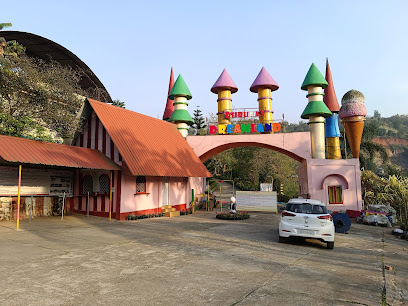
Tawang Tours
1.9 km
Unveil the wonders of Assam with Tawang Tours, your guide to breathtaking landscapes and rich cultural experiences in Northeast India.
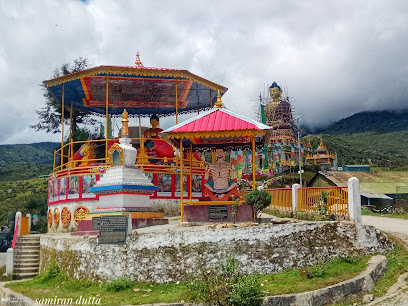
NORTH EAST INDIA TOURS
2.5 km
Uncover the hidden gems of North East India with expertly guided tours through lush landscapes and vibrant cultures.
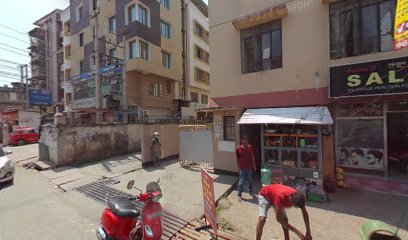
Northeast India Tourism
2.6 km
Discover the beauty and culture of Northeast India with expert guidance at the Northeast India Tourism information center in Guwahati, Assam.

North East India Unexplored
2.7 km
Explore the unparalleled beauty and rich culture of North East India with expertly curated tours that reveal its hidden treasures.
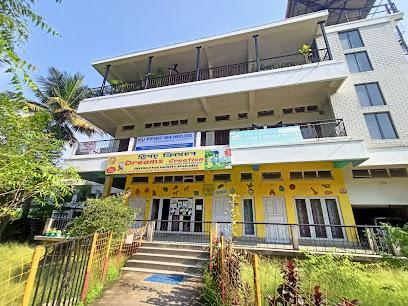
Mini
4.3 km
Explore Mini in Guwahati, a tranquil tourist attraction that beautifully blends nature with local culture, perfect for relaxation and discovery.

Northeastindia.org
5.5 km
Explore the beauty and culture of Northeast India with personalized home stays and expert tour services in Guwahati, Assam.
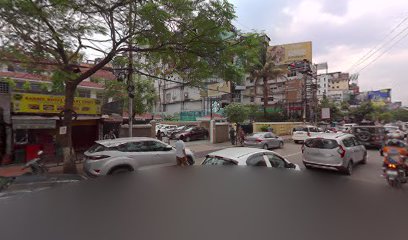
North East Trip
5.5 km
Discover the enchanting landscapes and rich cultural heritage of Northeast India with expert-guided tours from North East Trip in Guwahati.
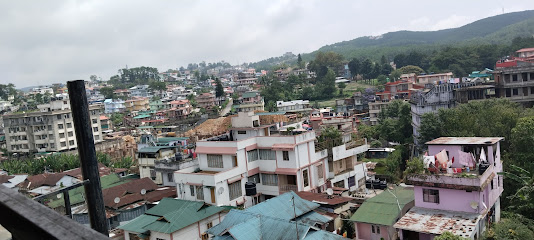
NorthEast India24
6.0 km
Experience the vibrant media culture of Guwahati at NorthEast India24, where stories of Northeast India come to life.
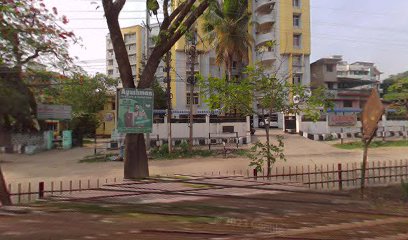
TOURIST ROUTE INDIA
6.2 km
Explore Northeast India with Tourist Route India – your gateway to unique adventures and rich cultural experiences in Assam and beyond.
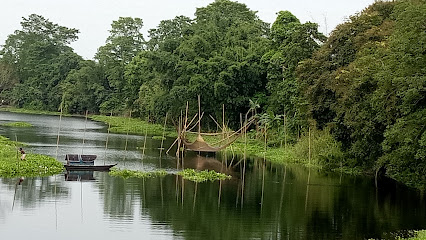
Pub Santi Nagar,Nizarapath
6.7 km
Experience lively Assamese nightlife and delicious cuisine at Pub Santi Nagar, a must-visit destination for tourists in Guwahati.

Rediscoverdenortheast
7.1 km
Explore the serene beauty and rich culture of Assam at Rediscover Northeast, a stunning tourist attraction nestled in the heart of Sarania Hills.
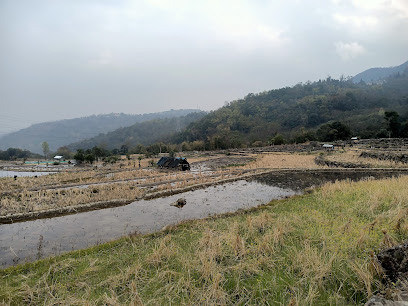
KARGIL: GUWAHATI VIEW POINT
7.1 km
Discover the breathtaking beauty of Kargil: Guwahati View Point, where panoramic views and serene landscapes await in Assam.
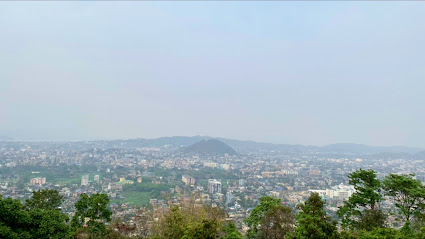
Sonaighuli Viewpoint
7.5 km
Discover the breathtaking beauty of Sonaighuli Viewpoint in Guwahati, where nature's tranquility meets stunning panoramic views.
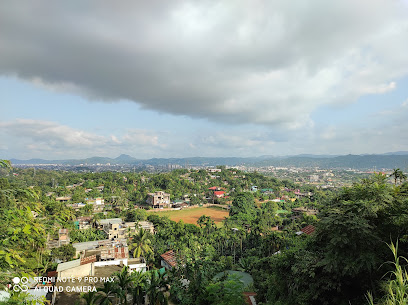
North East Live
7.6 km
Explore the vibrant tapestry of Assam through North East Live, your premier source for news and cultural insights in Guwahati.

Unmissable attractions to see
Srimanta Sankaradeva Kalakshetra
0.1 km
Discover the vibrant Assamese culture at Srimanta Sankaradeva Kalakshetra, a cultural center and museum showcasing the legacy of a great saint-scholar.
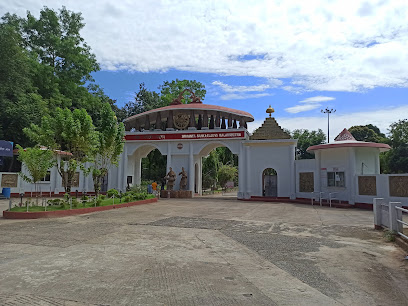
SCIENCE MUSEUM, Khanapara Guwahati
1.2 km
Unveil the mysteries of science at the Science Museum in Khanapara, Guwahati, featuring interactive exhibits and a thrilling dinosaur park for all ages.
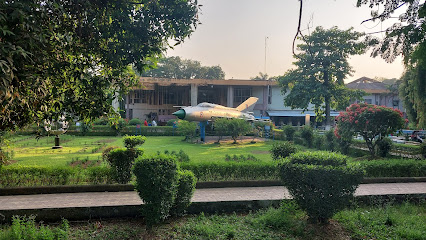
Mini Tajmahal
4.6 km
Experience the Mini Taj Mahal in Guwahati: A tranquil park that beautifully mirrors Mughal architecture, perfect for relaxation and cultural immersion.

Basistha Temple
5.4 km
Experience the serene beauty and spiritual heritage of Basistha Temple in Guwahati, a tranquil Hindu sanctuary amidst nature's splendor.
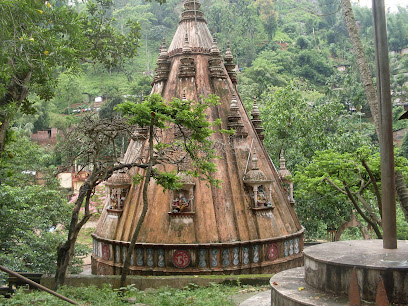
Assam State Zoo cum Botanical Garden
5.5 km
Explore the Assam State Zoo cum Botanical Garden, a vibrant haven of wildlife and exotic plants in Guwahati, perfect for families and nature lovers.
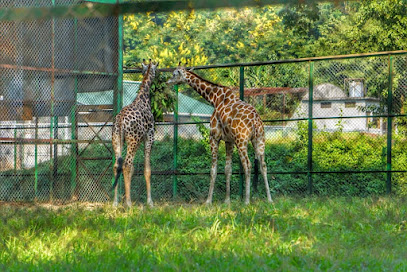
Alakananda View Point
5.6 km
Discover the serene beauty of Alakananda View Point in Guwahati, where breathtaking vistas and tranquility await every traveler.
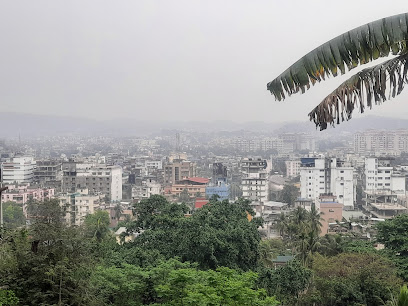
Shraddhanjali Kanan
5.7 km
Explore the serene beauty of Shraddhanjali Kanan, Guwahati's lush green park perfect for relaxation, picnics, and outdoor activities amidst nature.
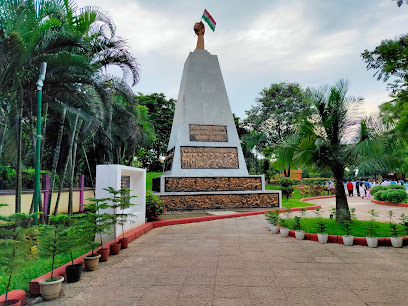
Kargil View point 2
7.2 km
Discover the stunning vistas and tranquil ambiance at Kargil View Point 2, a must-visit tourist attraction in Guwahati, Assam.
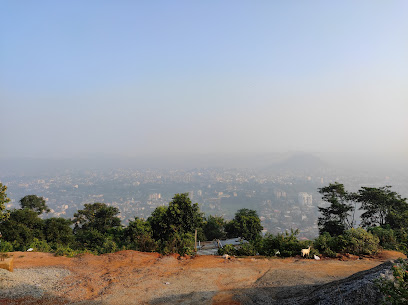
Highest National Flag, Assam.
7.6 km
Experience the pride of India at the Highest National Flag in Assam, a towering symbol of patriotism and breathtaking views in Guwahati.
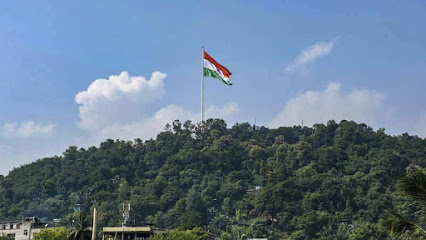
Gandhi Mandap
7.6 km
Explore the serene Gandhi Mandap in Guwahati, a historical landmark dedicated to the principles of peace and unity championed by Mahatma Gandhi.
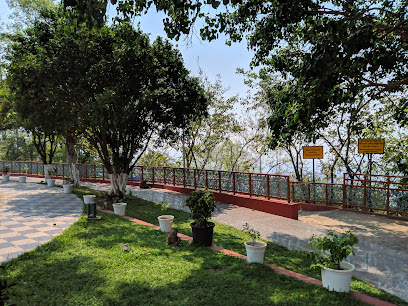
Guwahati View Point 2
7.6 km
Discover the stunning landscapes and serene beauty at Guwahati View Point 2, offering breathtaking views of the city and beyond.
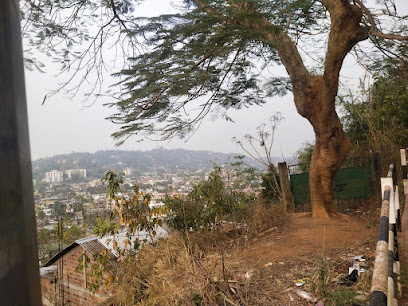
Pratima Pandey Memorial Park
7.7 km
Explore the serene Pratima Pandey Memorial Park in Guwahati, a lush green oasis perfect for relaxation and family outings.
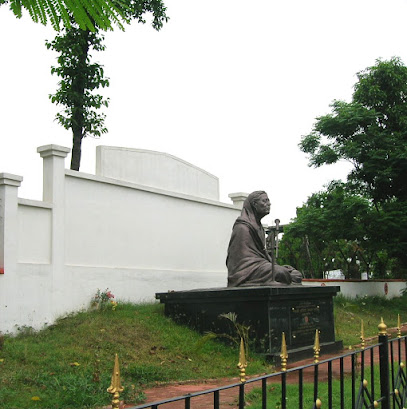
Garbhanga Reserve Forest
8.1 km
Explore the lush landscapes and vibrant wildlife of Garbhanga Reserve Forest, a hidden gem near Guwahati, Assam, perfect for nature enthusiasts.
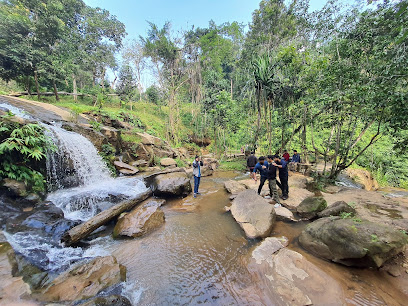
ISKCON Guwahati
8.2 km
Experience spiritual tranquility at ISKCON Guwahati, a vibrant Hindu temple known for its beautiful architecture and rich cultural heritage.
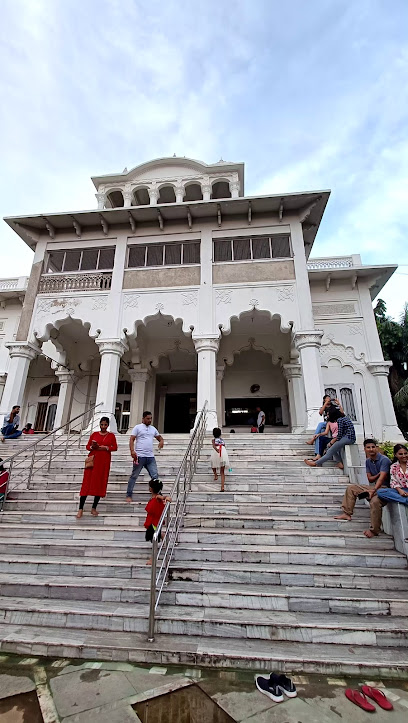
Sunset View BELTOLI
8.3 km
Experience breathtaking sunsets and serene surroundings at Sunset View BELTOLI, a must-visit destination in Guwahati, Assam.
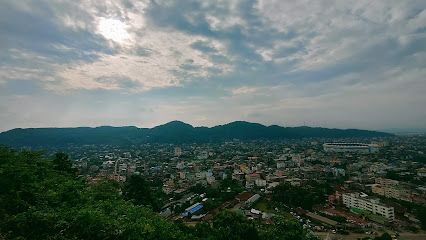
Essential places to dine
Bamboo Heights Ethnic Family Restaurant
0.5 km
Experience the perfect blend of Indian and Chinese cuisines at Bamboo Heights Ethnic Family Restaurant in Guwahati.

Dine Way Platz
0.8 km
Experience exquisite fine dining at Dine Way Platz in Guwahati – where local flavors meet international cuisine in an inviting atmosphere.

JO:SAG - Ethnic Cuisine Restaurant
1.0 km
Discover authentic Assamese flavors at JO:SAG - Ethnic Cuisine Restaurant in Guwahati, where tradition meets taste.
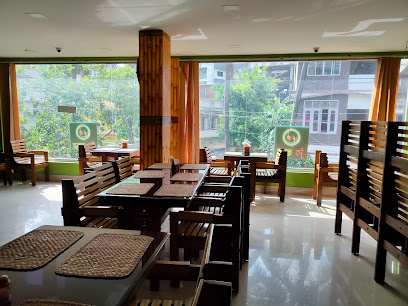
Michinga Restaurant
1.6 km
Discover the heart of Assamese cuisine at Michinga Restaurant, where tradition meets flavor in every dish.

Lam Naga Restaurant
1.6 km
Experience authentic North Eastern Indian cuisine at Lam Naga Restaurant in Guwahati—where every dish tells a story.

Paaro Jodi Khaa restaurant
1.7 km
Discover the rich flavors of Assam at Paaro Jodi Khaa, where authentic Indian and Chinese dishes come together in a vibrant setting.
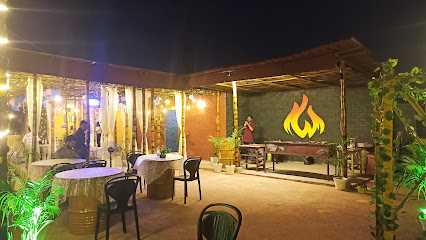
Aroma : Modern Dining
1.7 km
Discover Aroma: A gastronomic delight blending local Assamese flavors with international cuisine in a serene setting.

Eats & Beats Restro
1.9 km
Experience the best of Indian cuisine at Eats & Beats Restro in Guwahati - where delicious food meets vibrant ambiance.

Kalita Spectrum
2.1 km
Experience the best of Korean, Indian, and Continental cuisine at Kalita Spectrum in Guwahati - where flavor meets culture.

Café Hendrix
2.4 km
Experience exquisite cuisine and vibrant live music at Café Hendrix in Guwahati - where every meal is a celebration.
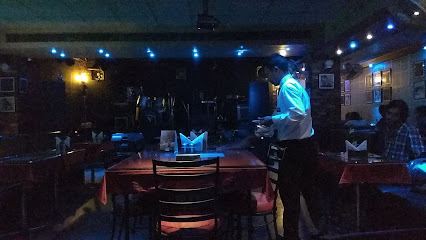
Souka Restaurant
2.4 km
Discover the flavors of Assam at Souka Restaurant in Guwahati—where family-friendly dining meets exquisite culinary delights.
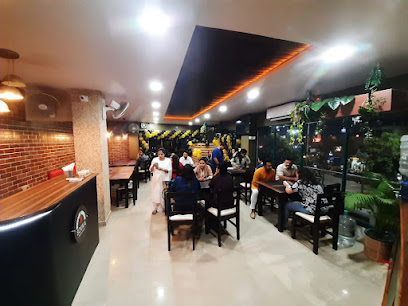
Banbati the flavours of Northeast
2.5 km
Experience the authentic flavors of Assam at Banbati – where every dish tells a story of Northeast India's rich culinary heritage.

JholoeKiya : Experiential Dining
2.9 km
Experience Assam's rich culinary heritage at JholoeKiya in Guwahati – where every meal is a flavorful journey.

The Spice Route
3.0 km
Discover culinary delights at The Spice Route—where authentic Chinese and Thai cuisine meet lively entertainment in Guwahati.

The SecreTrait
3.2 km
Experience the vibrant flavors of Asia at The SecreTrait - a must-visit dining destination in Guwahati offering authentic North Indian and Chinese cuisine.

Markets, malls and hidden boutiques
Panjabari gift store
1.0 km
Explore the charm of Assam at Panjabari Gift Store, where unique handicrafts and local treasures await every traveler.

KING's COLLECTION ASSAM
1.1 km
Explore the vibrant fashion scene at KING's COLLECTION ASSAM, where traditional Assamese textiles meet modern style in Guwahati.

Rudram- The Ethnic Fashion House Boutique
1.3 km
Discover the essence of Assamese culture at Rudram, the premier ethnic fashion boutique in Guwahati, showcasing exquisite traditional attire and unique handicrafts.

Abhinandan Gifts & Cosmetics
1.4 km
Explore the unique blend of Assamese culture and beauty at Abhinandan Gifts & Cosmetics, your go-to spot for souvenirs and cosmetics in Guwahati.
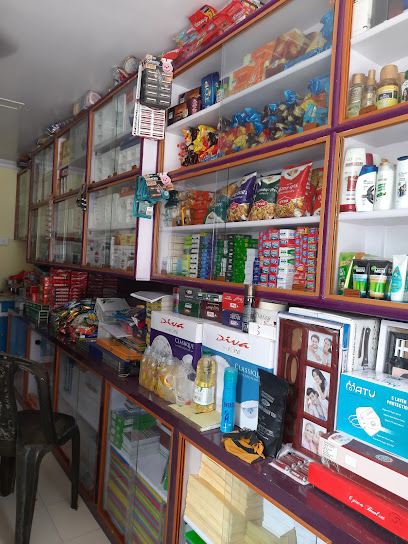
Hello Beautiful-Beltola Bazaar (Upama3)
2.0 km
Discover a vibrant women’s clothing store in Guwahati, offering unique styles, accessories, and a delightful shopping experience at Hello Beautiful-Beltola Bazaar.

Shahnaz Fashion (Since 1998)
2.1 km
Discover exquisite Assamese fashion at Shahnaz Fashion, a boutique in Guwahati offering custom tailoring and stylish outfits since 1998.

DARSHWANA GIFT & DECOR
2.5 km
Explore a curated selection of unique gifts and elegant home decor at Darshwana Gift & Decor in Guwahati, Assam.
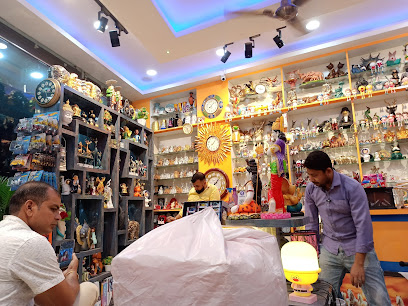
Lifestyle Stores
3.0 km
Discover a vibrant shopping experience at Lifestyle Stores in Guwahati, where fashion meets beauty in a delightful retail atmosphere.

Copo by Rupohi Assam
3.1 km
Explore the charm of Assam with unique handcrafted souvenirs and gifts at Copo by Rupohi Assam in Guwahati.

Kuhi Gift Shop
3.5 km
Explore the vibrant culture of Assam through unique handicrafts and souvenirs at Kuhi Gift Shop in Guwahati, where every item tells a story.

October 6 - A Multidesigner Store
3.5 km
Explore October 6, Guwahati's premier multidesigner store for unique fashion pieces and an unforgettable shopping experience.

AARNA Exclusive Gift & Toys
3.8 km
Explore AARNA Exclusive Gift & Toys in Guwahati for unique, locally-crafted gifts and toys that embody the charm of Assam.

Poshak Boutique Ganeshguri
4.5 km
Discover unique Assamese fashion at Poshak Boutique in Ganeshguri, Guwahati – where tradition meets contemporary style.

The Silkalay
4.8 km
Explore The Silkalay in Guwahati for a unique blend of traditional Assamese textiles and exquisite handicrafts reflective of the region's rich culture.

City Center
4.8 km
Discover the ultimate shopping experience at City Center, Guwahati's leading mall with top brands, diverse dining, and family-friendly entertainment.

Essential bars & hidden hideouts
Urban Mantra six mile
1.0 km
Discover Urban Mantra in Guwahati, where culinary excellence meets a vibrant bar atmosphere for unforgettable dining experiences.

Spectrum Bar
2.1 km
Discover the lively atmosphere and diverse drink selection at Spectrum Bar in Guwahati, where unforgettable nights await.

DUNKIN OZA
2.3 km
Discover the vibrant nightlife at Dunkin Oza in Guwahati, where cocktails and craft beers meet a lively atmosphere.

Nuts and Brew
2.6 km
Experience the best of craft beers, delicious food, and live music at Nuts and Brew, Guwahati's premier brewpub and nightlife destination.

Exotica Bar and Restro
2.8 km
Explore the vibrant nightlife of Guwahati at Exotica Bar and Restro, offering delicious local cuisine and a wide range of drinks in a lively atmosphere.

THE ECHO Pub & Grill
3.0 km
Discover the nightlife of Guwahati at THE ECHO Pub & Grill, where vibrant energy meets delicious cuisine and refreshing drinks.
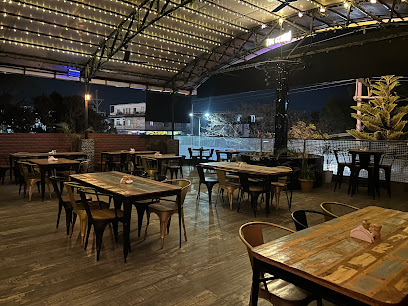
Wine O’Clock Restro Bar
3.0 km
Discover the vibrant nightlife of Guwahati at Wine O’Clock Restro Bar, where music, dance, and delicious food come together for an unforgettable evening.

Unique WINE SHOP
3.2 km
Experience the elegance of wine at the Unique Wine Shop in Guwahati, where every bottle tells a story and every sip transports you to a world of flavor.
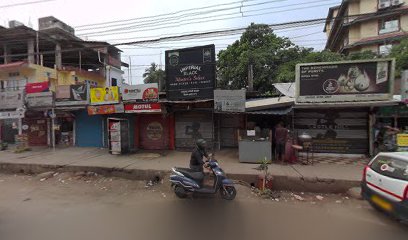
Intoxica Bar Cum Restaurant
3.9 km
Discover the fusion of vibrant nightlife and exquisite dining at Intoxica Bar Cum Restaurant in Guwahati.

T Sin Q - Sports cum Lounge Bar
4.2 km
Experience the ultimate blend of sports, drinks, and vibrant nightlife at T Sin Q Sports Lounge Bar in Guwahati.

SIN LOUNGE
4.5 km
Discover the vibrant flavors of Assam at Sin Lounge, a premier grill restaurant in Guwahati offering a delightful dining experience.

The Socialite
4.9 km
Discover the vibrant atmosphere and delectable culinary offerings at The Socialite, Guwahati's premier bar and restaurant for food and drink enthusiasts.

Quarters - Pauva Bar
4.9 km
Experience the vibrant nightlife of Guwahati at Quarters - Pauva Bar, where great drinks and an inviting atmosphere await.

Ascend Resto Lounge & Bar
5.1 km
Experience exquisite dining and vibrant nightlife at Ascend Resto Lounge & Bar in Guwahati, where culinary delights meet spectacular city views.

The Beer Cafe, Guwahati
5.2 km
Experience the vibrant flavors and lively atmosphere at The Beer Cafe, Guwahati's premier bar and grill for food and drink enthusiasts.




